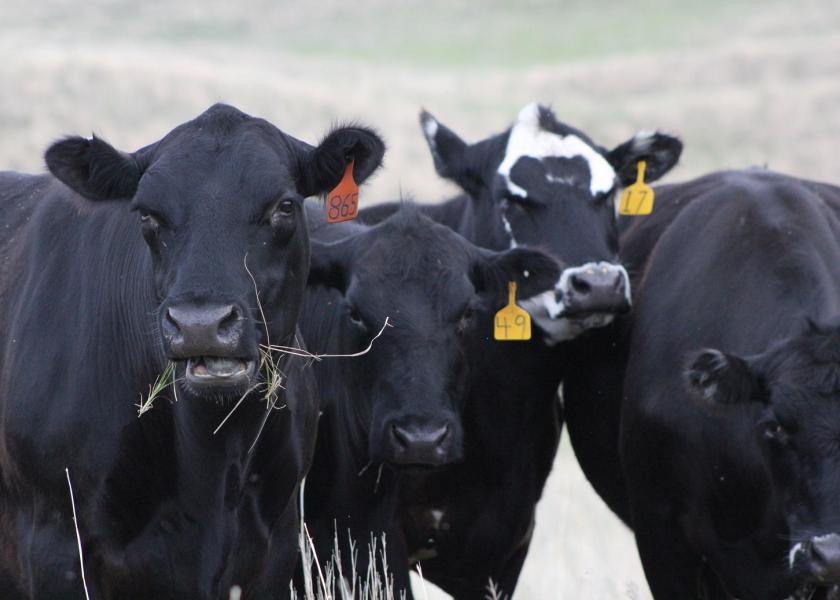The 'Positive Associative Effect' of High Protein Supplements

As the day length shortens, plants become more mature and lower in protein content. However, the protein requirements for growth, milk production, and body weight maintenance of beef cattle do not decrease as the “dog days of summer” arrive.
The micro-organisms in the rumen of beef cows and replacement heifers require readily available protein to multiply and exist in large enough quantities to digest the cellulose in low quality roughages. Protein supplementation of low-quality, low protein forages results in a “positive associative effect”.
This “positive associative effect” occurs as supplemental protein available to the “bugs” in the rumen allows them to grow, multiply, and digest the forage more completely and more rapidly. Therefore the cow gets more out of the hay she consumes, she digests it more quickly and is ready to eat more hay in a shorter period of time.
Data from Oklahoma State University illustrates this (Table 1, McCollum and Galyean, 1985, J. Anim. Sci). The prairie hay used in this study was less than 5% crude protein. When the ration was supplemented with 1.75 lbs of cottonseed meal, retention time of the forage was reduced 32% which resulted in an increase in feed intake of 27%. Because hay intake was increased, the animal has a better chance of meeting both the protein and energy requirement without supplementing other feeds.
Table 1. Effect of Cottonseed Meal Supplementation on Ruminal Retention Time and Intake of Low-Quality Prairie Hay
Daily Supplement of Cottonseed Meal
|
|
None |
1.75 lb |
Change |
|
Rumen Retention Time, Hr |
74.9 |
56.5 |
-32% |
|
Voluntary Daily Hay Intake, % of body wt. |
1.69 |
2.15 |
+27% |
Because retention time was decreased, one should expect the protein supplementation in this situation also increased digestibility of the hay. This was shown clearly in another OSU trial that indicated that low quality roughage had an increase in estimated digestibility from 38% to 48% when the cattle were supplemented with 1.5 pounds of soybean meal daily.
As producers prepare their late summer, fall, and winter feed strategies, they can see the importance of providing enough protein in the diet of the cows to feed the “bugs” in the rumen. If the forage is low in protein (less than 8 % crude protein), a small amount of supplemental protein such as cottonseed meal, soybean meal, or one of the higher protein by-product feeds, could increase the amount and digestibility of the forage being fed. This strategy requires that ample forage is available to take advantage of the “positive associative effect”.
As the table above illustrates, properly supplemented cows or replacement heifers will voluntarily consume about 27% more forage if they were provided adequate protein. As long as enough forage is available, this is a positive effect of a small amount of protein supplement. Cows that are already in excellent body condition in late summer will not benefit from the additional expense, however, young thin cows would be candidates for protein supplementation in late summer and fall. The increase in body condition can be achieved with minimal expense, especially if the spring-born calves are weaned in early fall.







